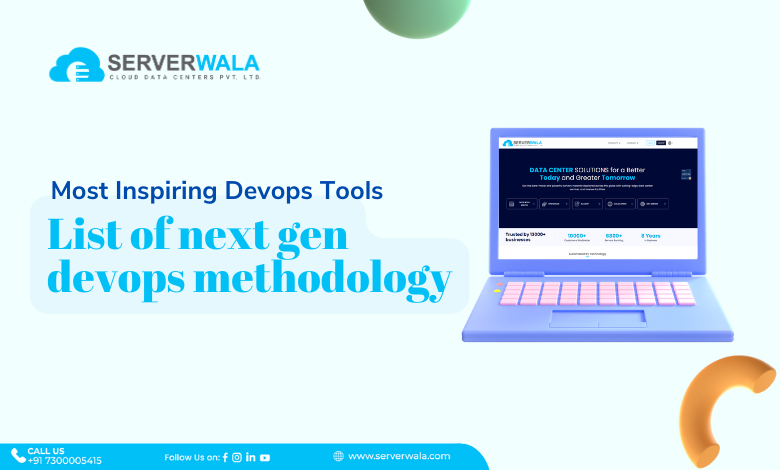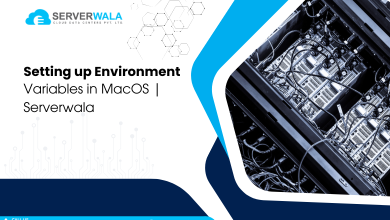Most Inspiring DevOps Tools List of Next-Gen DevOps Methodology

Introduction
In the current times, DevOps is among the most prominent buzzwords in the technological world. This is because DevOps provides an extensive range of benefits and privileges to organizations, businesses, and companies for trimming their software development life cycle.
What is DevOps?
One can not give any particular or single definition when it comes to answering the question “What is DevOps”? DevOps can not be considered just as a technology, tool, or framework. It is much more than philosophy as well as a concept.
DevOps is typically a group of practices that merge IT operations (Ops) and software development (Dev) to trim the systems development life cycle while providing continuous integration and delivery with top-notch quality software. It is an ever-evolving ideology that facilitates more rapid, sounder application development while releasing new or revised software features or products to customers at the fastest pace. Practicing DevOps enables smoother, steady communication, integration, visibility, collaboration, and clarity between application development teams (Dev) and their corresponding IT operations team (Ops).
This closer relationship between “Dev” and “Ops” saturates each phase incorporated in the DevOps lifecycle, for example, initial software planning, coding, testing, releasing, deployment, functioning, monitoring, and others. Moreover, this consolidated relationship also drives a continuous customer feedback loop of further advancement, development, testing, and deployment. All these efforts provide the outcomes that help in the prompt and continual release of required feature modifications or expansions.
Some users usually group DevOps goals into four classifications: culture, automation, measurement, and sharing (CAMS). This is where the DevOps tools list becomes highly beneficial. With the DevOps tooling, you can enable development and operations workflows to get more streamlined and collaborative. Also, they efficiently reduce the time required for doing manual or static jobs involved in the development, testing, integration, deployment, or monitoring by automating them.
Most Useful DevOps Tools list
Let us take you through the DevOps tools list categorized under some crucial different aspects depending upon the tools’ functionalities. Each following category highlights some of the crucial tools.
Continuous Integration
Jenkins
Jenkins is referred to as one of the famous open-source DevOps tools. It provides huge support for constant integration and delivery through DevOps. Regardless of the platform employed by different users, Jenkins enables continuous integration as well as delivery of projects through utilizing diverse build and deployment pipelines. Moreover, it can be integrated with numerous testing and deployment tools.
Travis CI
Travis CI serves as a continuous integration platform that is cloud-hosted. It is employed to construct and test projects that are hosted on GitHub and Bitbucket. Further, it is configured with the help of a YAML file. Also, it can be tested free of cost when it comes to open-source projects. Whereas it can be tested on a fee basis for a specific private project.
Bamboo
Bamboo was developed by Atlassian for supporting seamless continuous integration. With time, it also becomes the most popular product. Most of its functionalities are prebuilt. This implies you are not required to download several plugins. With Bamboo, you can also acquire excellent support towards other Atlassian products such as JIRA and Bitbucket.
Planning & Collaboration
JIRA
Jira is a famous project management tool. It is developed by Atlassian and is utilized for bug as well as project tracking. With JIRA, you can track or know the status of your project or issue raised. Further, it can get It can also be integrated with other Atlassian products such as Bitbucket.
Zoom
Zoom is the most popular web conferencing and instant screen-sharing platform employed in the current times. It lets you make your team or group of people join through audio or video. Zoom has the capability of accepting up to 1000 recipients into an online meeting.
Source Code Management
SVN
In the DevOps tools list, SVN serves as a Centralized version and is a source control tool. It was developed by Apache. It enables the developers to maintain diverse versions of source code as well as manage a complete history of all the modifications.
Git
Git is known as the distributed version control system. It aims to provide huge support for speed, data integrity, and non-linear workflows. Apart from managing the source code, you can also employ Git to keep track of modifications in any set of files.
Build
Maven
Maven is known as a build automation tool. Commonly, it is utilized majorly for Java projects. It possesses an XML file that tells about the software project being built, all its dependencies, directories, needed plug-ins, and the build sequence.
Gradle
Gradle is in the DevOps tools list as an open-source build automation system. It is constructed on the notions of Apache Maven and Apache Ant. It provides support to Groovy’s proper programming language rather than XML configuration files.
Cloud Hosting
AWS
AWS serves as a web hosting platform offering flexible, scalable, reliable, easy-to-use, and feasible solutions. It is built by Amazon. With the help of the AWS cloud platform, you do not have to get bothered about setting up IT infrastructure that consumes a considerable time in setting up.
Azure
Microsoft designed the Azure cloud computing platform to construct, deploy, test, and handle applications as well as services through a global network of its data centers. Microsoft Azure renders services that are basically in the form of IaaS (Infrastructure as a service) and PaaS (Platform as a service).
Containerization/Orchestration
Docker
With the help of Docker DevOps methodology, you can build, deploy, and operate applications employing containers. The container enables the developer to package an application with required components as well as sub-components like libraries and other dependencies. Then, it ships everything out in the form of an individual package.
Kubernetes
Kubernetes is designed by Google. However, currently, it is administered and managed by the Cloud Native Computing Foundation. It is an open-source container orchestration system. It is employed to automate the scaling, management, and deployment of the application. It can also efficiently operate with other container tools, including Docker.
There are a lot more other tools as well that get counted in the DevOps tools list. You can discover as per your business requirements.
Benefits Of DevOps Tools
DevOps advocates numerous businesses while providing huge technical benefits. Some of the crucial advantages of DevOps incorporate –
- DevOps technologies enable quicker and more promising product delivery.
- The DevOps methodology facilitates more rapid issue resolution as well as reduces complexity.
- It provides tremendous scalability and high availability.
- With the DevOps tools list, you acquire greater visibility into system outcomes.
- DevOps tooling also promoted stable operating platforms.
- You can have greater automation and perform bigger innovations with DevOps technologies.
- Your business can do more profitable and intelligent resource utilization.
- The DevOps tools list also lets you enhance the process while continuing the cost reduction.
- You get the great opportunity to improvise on collaboration and communication.
Besides, people can not rely on just one single tool from the DevOps world to fulfill all their necessities. Instead, one must discover the right tool capable of meeting one’s business or organization’s particular requirements.
Also Read: How to Add a User to Linux Group
Conclusion
The DevOps technologies have their core value in cracking down hindrances to communication and collaboration between development and IT operations teams. This is because the ultimate purpose of the DevOps tools list is solely customer satisfaction and immediate delivery of value. Furthermore, DevOps has also been devised to drive business innovation and constant process improvement.
The practice of DevOps involves and stimulates prompt, reliable, highly protected delivery of business value to an organization or company’s end customers. This further leads to more frequent product releases, features, or updates. DevOps aims to make a product release successful, introduce a new feature, or identify & resolve a bug as quickly as possible while ensuring the appropriate levels of quality and security. On the other hand, the underlying infrastructure is developed in a way that is perfect for supporting DevOps with seamless reliability, performance, and availability.





